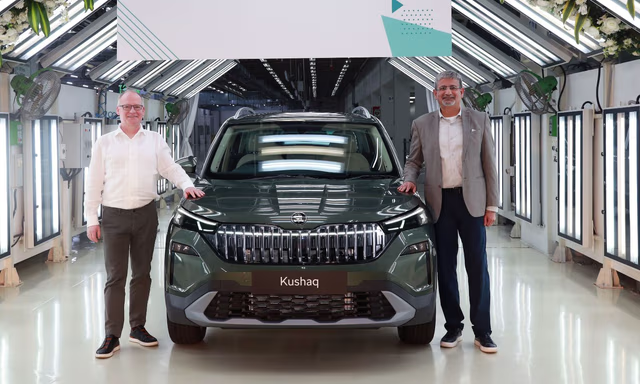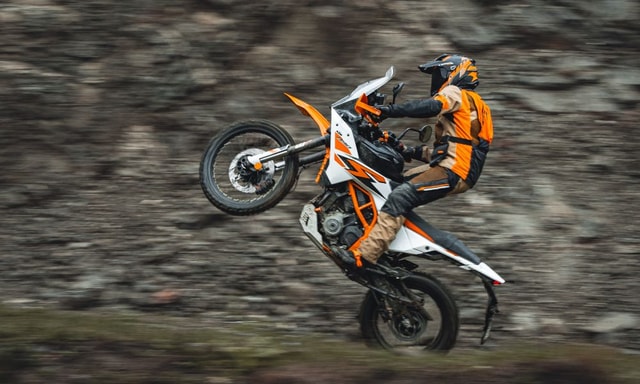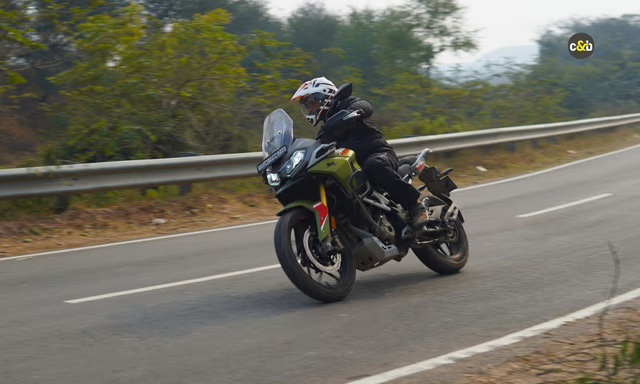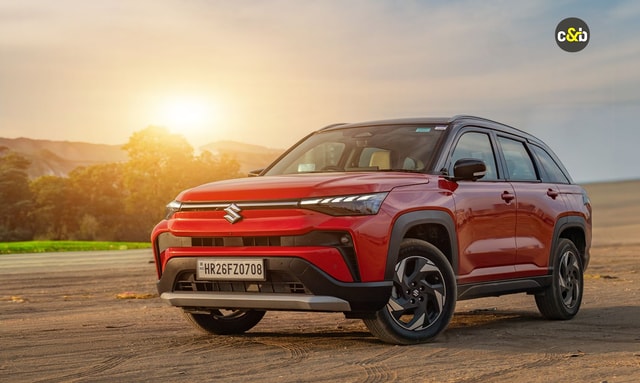Continental Celebrates The 50th Anniversary Of The Anti-Lock Braking System

German auto component maker, Continental, has announced the completion of 50 years, since the world premiere of the first Anti-Lock Braking System (ABS) at the 1969 Frankfurt Auto Show. It was the American technology firm Teves, later changed to IIT Teves, which had showcased the MK 1, the first anti-lock braking system at the motor show. Interestingly, the idea of a technology that can prevent the wheels from locking under hard barking was present since the 1920s, but the solution to the problem only emerged with the development of powerful electronics. So, in 1965, engineers at IIT Teves started working on an ABS for passenger cars, and later became a part of Continental, before it entered series production.
While the technology was revealed in 1969, it took another 15 years, until 1984 for it to enter series production, mainly due to oil crises and subsequent weakening of the economy, which affected the automotive market back then. However, during this period, the company did install the ABS technology in 36 test vehicles which were used by the Swedish Police. However, the time also allowed Teves to work on perfecting the system, and in 1984, it launched the MK II, the world's first microprocessor-controlled ABS for passenger cars on the road. It was the first system to combine the brake function, brake booster, hydraulic control and anti-lock brake system into one compact unit.

The MK I and MK II were early ABS units, while the MK C1 is the latest system from Continental; MIB is ABS for motorcycles
Helmut Fennel, who at the time held a key function in promoting the use of microprocessors for ABS, explains the decisive advantage of the technology as follows: "Due to its programmability, our system could be quickly and optimally validated both for braking manoeuvres on rough roads, that is, with a high coefficient of friction, and for those on slippery roads, such as on ice in winter. It was also considerably more flexible than other solutions and could, therefore, be quickly adapted to different vehicle concepts, such as models with front-wheel or all-wheel drive. The microprocessor solution gave us a head start of several years."
Back then ABS technology was considered to be a premium feature and was only offered as optional equipment for an additional cost. In fact, in North America, the Lincoln Continental, while the European market saw the addition of ABS in the Ford Scorpio, however, the latter got the safety system as a standard feature. Soon, Continental started updating its ABS units with a traction control system (TCS), and soon with every generation upgrade, new features started coming in as part of the package like - electronic brake force distribution (EBD) and electronic stability control (ESC). Today an ABS technology is equipped with up to 50 additional functions, such as the automatic release of the parking brake when starting, hill start assist, or as an important component of adaptive cruise control systems. The first production-ready ABS from Continental was the size of a 5-litre gas can and weighed 11.5 kilograms, now it' weighs as low as 2 kgs or less.
Continental says, since the introduction of the first systems at the end of the 1970s, the total number of people killed in road traffic in Germany has fallen by 80 per cent. The company also says that according to GIDAS accident research, 25 per cent of all motorcycle accidents in the two-wheel sector can also be prevented by standard ABS. Thus, ABS makes a significant contribution to the long-term goal of Vision Zero, a future without road traffic crashes.
Latest News
 Jaiveer Mehra | Feb 23, 2026Skoda Kushaq Facelift Production Commences Ahead Of LaunchThe facelifted Kushaq made its global debut last month with deliveries set to commence from March 2026.1 min read
Jaiveer Mehra | Feb 23, 2026Skoda Kushaq Facelift Production Commences Ahead Of LaunchThe facelifted Kushaq made its global debut last month with deliveries set to commence from March 2026.1 min read Jaiveer Mehra | Feb 23, 20262026 Isuzu D-Max Hi-Lander Launched At Rs 21.05 Lakh; Gets Automatic Gearbox Option, More FeaturesThe Hi-Lander continues to only be offered in 4x2 spec, but now packs in similar features as the base-spec V-Cross.1 min read
Jaiveer Mehra | Feb 23, 20262026 Isuzu D-Max Hi-Lander Launched At Rs 21.05 Lakh; Gets Automatic Gearbox Option, More FeaturesThe Hi-Lander continues to only be offered in 4x2 spec, but now packs in similar features as the base-spec V-Cross.1 min read car&bike Team | Feb 23, 2026KTM Ends Long-Term Partnership With KISKA DesignWith Bajaj Auto now the owner of KTM, the Austrian brand is shifting to in-house design but will still work with KISKA on some projects.1 min read
car&bike Team | Feb 23, 2026KTM Ends Long-Term Partnership With KISKA DesignWith Bajaj Auto now the owner of KTM, the Austrian brand is shifting to in-house design but will still work with KISKA on some projects.1 min read Jaiveer Mehra | Feb 22, 20262026 Isuzu D-Max V-Cross Gets New Features, Cosmetic Updates; Prices Start From Rs 25.50 LakhUpdates include the addition of a new 10.3-inch touchscreen & 360 degree cameras, among others; no 4x2 option.1 min read
Jaiveer Mehra | Feb 22, 20262026 Isuzu D-Max V-Cross Gets New Features, Cosmetic Updates; Prices Start From Rs 25.50 LakhUpdates include the addition of a new 10.3-inch touchscreen & 360 degree cameras, among others; no 4x2 option.1 min read car&bike Team | Feb 21, 2026Norton Atlas Spotted Testing In India Once AgainThe spied model appears to be the base version of the mid-capacity adventure tourer.1 min read
car&bike Team | Feb 21, 2026Norton Atlas Spotted Testing In India Once AgainThe spied model appears to be the base version of the mid-capacity adventure tourer.1 min read car&bike Team | Feb 21, 20262026 Tata Punch EV Facelift: Variants, Features, Prices ExplainedThe Punch EV facelift is offered in six variants and with two battery pack options. Here is a rundown of what each variant has to offer.1 min read
car&bike Team | Feb 21, 20262026 Tata Punch EV Facelift: Variants, Features, Prices ExplainedThe Punch EV facelift is offered in six variants and with two battery pack options. Here is a rundown of what each variant has to offer.1 min read
 Preetam Bora | Feb 23, 2026TVS Apache RTX Road Test Review: Redefining the Entry-Level ADVAfter spending some time with the TVS Apache RTX in traffic, the daily commute, as well as on open highways, one thing becomes clear: the RTX is trying to redefine the entry-level ADV segment. But is it without fault?1 min read
Preetam Bora | Feb 23, 2026TVS Apache RTX Road Test Review: Redefining the Entry-Level ADVAfter spending some time with the TVS Apache RTX in traffic, the daily commute, as well as on open highways, one thing becomes clear: the RTX is trying to redefine the entry-level ADV segment. But is it without fault?1 min read Girish Karkera | Feb 20, 2026Road Test: 2025 VinFast VF7 AWD Sky InfinityFlagship all-electric SUV from the Vietnamese car maker gets most of the basics right.1 min read
Girish Karkera | Feb 20, 2026Road Test: 2025 VinFast VF7 AWD Sky InfinityFlagship all-electric SUV from the Vietnamese car maker gets most of the basics right.1 min read Jaiveer Mehra | Feb 18, 2026New BMW X3 30 Vs Mercedes-Benz GLC 300: Midsize Luxury SUV FaceoffWith the new X3 30, BMW has a direct competitor to the petrol GLC 300, but which is the luxury SUV for you?1 min read
Jaiveer Mehra | Feb 18, 2026New BMW X3 30 Vs Mercedes-Benz GLC 300: Midsize Luxury SUV FaceoffWith the new X3 30, BMW has a direct competitor to the petrol GLC 300, but which is the luxury SUV for you?1 min read Jafar Rizvi | Feb 15, 2026Maruti Suzuki Victoris: Long-Term Review - Report 1The Victoris is Maruti’s latest offering for the Indian market, and after spending some time with it, here are a few early impressions.1 min read
Jafar Rizvi | Feb 15, 2026Maruti Suzuki Victoris: Long-Term Review - Report 1The Victoris is Maruti’s latest offering for the Indian market, and after spending some time with it, here are a few early impressions.1 min read Bilal Firfiray | Feb 12, 2026BMW X3 30 xDrive M Sport Review: The Driver’s SUV ReturnsRange-toppingX3 30 xDrive M Sport brings back the fun with 255bhp and genuine enthusiast appeal. Does this performance-focused SUV stand out?5 mins read
Bilal Firfiray | Feb 12, 2026BMW X3 30 xDrive M Sport Review: The Driver’s SUV ReturnsRange-toppingX3 30 xDrive M Sport brings back the fun with 255bhp and genuine enthusiast appeal. Does this performance-focused SUV stand out?5 mins read



















































































































